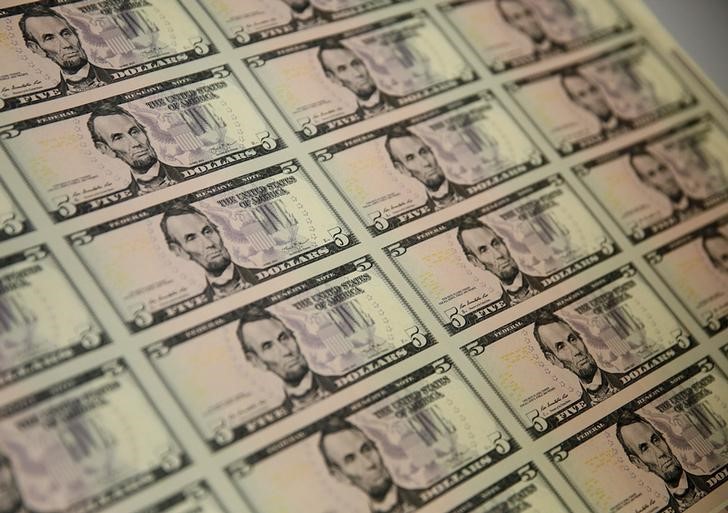Investing.com - The dollar remained supported against a basket of other major currencies on Thursday, after data showed that U.S. jobless claims rose slightly more than expected last week, while U.S. retail sales increased more than initially anticipated in May.
The U.S. Department of Labor reported on Thursday that the number of individuals filing for initial jobless benefits in the week ending June 6 increased by 2,000 to 279,000 from the previous week’s revised total of 277,000.
Analysts had expected initial jobless claims to remain unchanged at 277,000 last week.
Separately, the U.S. Commerce Department said that retail sales increased by 1.2% last month, beating expectations for a gain of 1.1%. Retail sales rose by 0.2% in April, whose figure was revised up from a previously reported flat reading.
Core retail sales, which exclude automobile sales, rose by 1.0% in May, compared to forecasts for a 0.7% increase. Core sales in April increased 0.1%.
The U.S. dollar index, which measures the greenback’s strength against a trade-weighted basket of six major currencies, was up 0.74% at 95.29.
EUR/USD retreated 0.87% to 1.1225 as uncertainty over Greece continued, although hopes for an agreement on a cash-for-reforms deal lent some support.
On Wednesday German Chancellor Angela Merkel said Greek Prime Minister Alexis Tsipras had agreed to work "intensively" with the country’s creditors in order to avoid default at the end of the month.
Greece’s bailout agreement with the European Union and the International Monetary Fund is set to expire at the end of this month and it cannot make further debt repayments without a new deal.
The dollar remained higher against the yen, with USD/JPY up 0.83% to 123.64, off Wednesday’s lows of 122.45.
The yen had rallied on Wednesday after Bank of Japan Governor Haruhiko Kuroda suggested that the relative value of the yen may not continue to fall.
Kuroda also said the dollar may not necessarily rise further against the yen if the Federal Reserve raises interest rates, as the possibility of rate hikes is already priced into the market.
Elsewhere, GBP/USD slipped 0.28% to 1.5484, while USD/CHF advanced 0.53% to trade at 0.9363.
The Australian and New Zealand dollars were weaker, with AUD/USD down 0.20% to 0.7723 and with NZD/USD tumbling 1.87% to 0.6985.
The kiwi was hit after the Reserve Bank of New Zealand unexpectedly cut its benchmark interest rate to a record-low 3.25% from 3.50% on Thursday. It was the first time the central bank lowered rates since 2011.
Commenting on the decision, RBNZ Governor Graeme Wheeler said the central bank has factored in another rate cut into its forecasts and is looking for a further fall in the local currency.
USD/CAD climbed 0.50% to trade at 1.2315.
